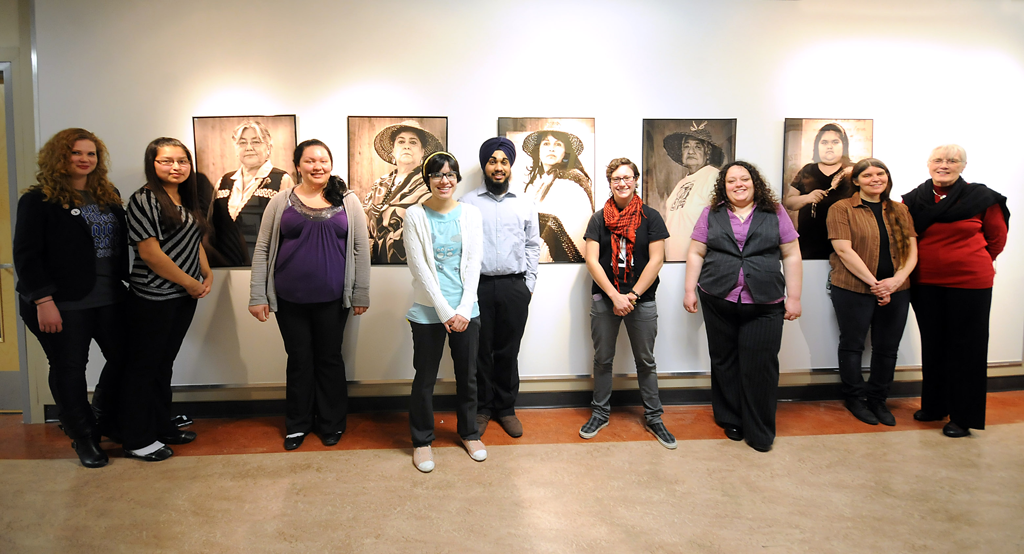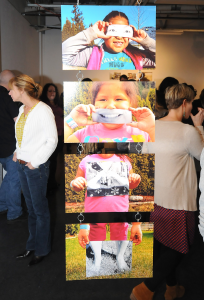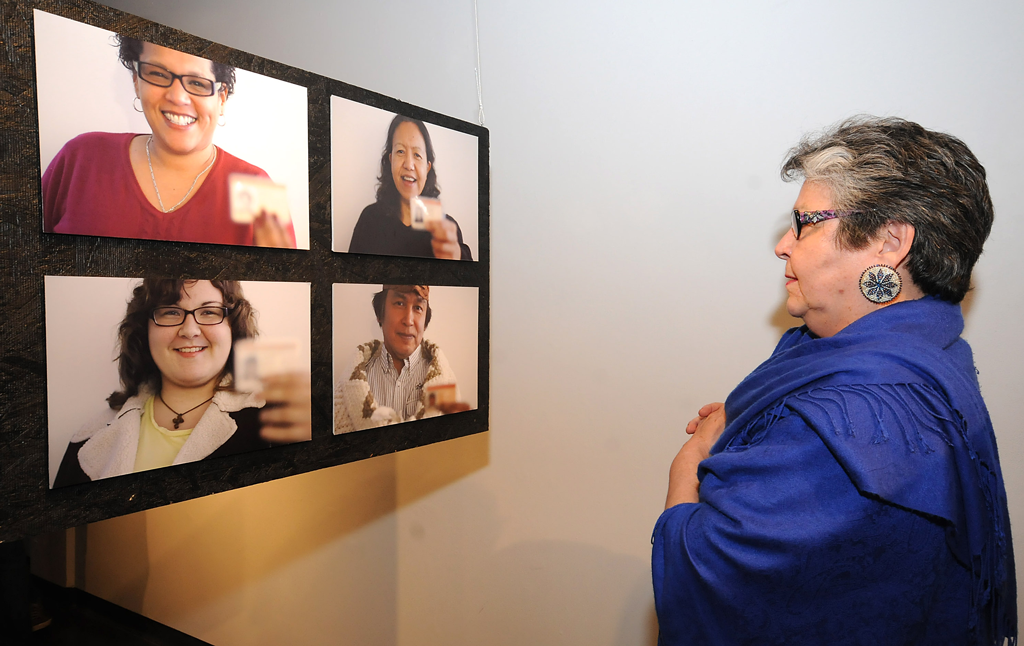By Nadine Moedt (The Cascade) – Email
Online Only: August 22, 2014

Film is a powerful mode of representation. While historically film has furthered a colonizing agenda, the movement to refocus that mode has a power of its own.
The Lens of Empowerment project, which retakes the power of storytelling through film and representational media, is part of that movement within UFV and the Stó:lo community.
“While stereotypes and Eurocentric worldviews are perpetuated in the media, filmmakers — including contemporary First Nations, Métis, and Inuit filmmakers — have also made fine films that question or counter stereotypes and present alternative points of view and representations,” says instructor Stephanie Gould.
Instructor Wenona Victor says the Lens of Empowerment project can contribute to this shattering of stereotypes.
“This project is an opportunity to change that [negative] lens, or at least focus it accurately and tell stories that empower the land, women, and our experiences,” Victor says.
The project is an immersive, five-course, two-semester program that provides students with an awareness of Stó:lo culture, identity, and citizenship as well as technical skills in camera operation and editing. The certificate focuses on stories close to home: on the voices and narratives of Stó:lo women.
The Lens project allows students to look critically at representations of Aboriginal peoples in film, art, and media. New stories can be told and questions of voice, artistic license, and representation can be asked by budding film- and change-makers.
The program’s first run in 2012 engaged students with a wide variety of experiences and backgrounds. The resulting projects found similar diversity; some students explored their own heritage in relation to the Stó:lo peoples, others interviewed members of the Stó:lo community and used visual art and film-making to engage with the narratives told.
Instructor Stephanie Gould says that UFV’s presence on traditional and unceded Stó:lo territory provides students with a unique opportunity to understand the interconnectedness of land and identity through the sqwelqwel, or the “true news” of an ongoing oral history.
“We hope it’s an opportunity for students to tell stories of women’s experience on video; to explore the project’s themes of women’s citizenship and identity in Stó:lo territory in a spirit of reconciliation (toward understanding and harmony) between Indigenous and non-Indigenous peoples and cultures; and to develop new knowledge, skills, and abilities,” Gould says. 
The program engages with a wide variety of student interests. Film, Stó:lo culture and storytelling, art-making, and gender studies are all part of the project’s themes.
“I would also say that students who would like to understand themselves better as well as our interconnectedness as people (community-building) and how art-making in a university context can engage with life, communities, and the wider world,” Gould says.
Specific courses include a fall semester of VA 160 (Introduction to Video Production), taught by Gould, IPK 277 (Indigenous Art: Stories and Protocols), with Victor, THEA 250 (Introduction to Storytelling) with Michelle LaFlamme and a winter semester including VA 161 (Video Production II) and VA 390 (Community Arts Practice) both taught by Gould. A screening of students’ work will take place following the completion of courses in spring 2015.
Students graduating from the program will not only leave with the 15 credits toward their degrees, but also with the skills to work in areas of documentary production, communications, and other creative industries.
“Whatever their aspirations, whether to make videos for a community organization or a festival, to start their own business eventually or to pursue a profession, [students] will come away from this project with useful skills,” Gould says.
The Lens of Empowerment project is still accepting applications for fall, and welcomes both Aboriginal and non-Aboriginal students.


